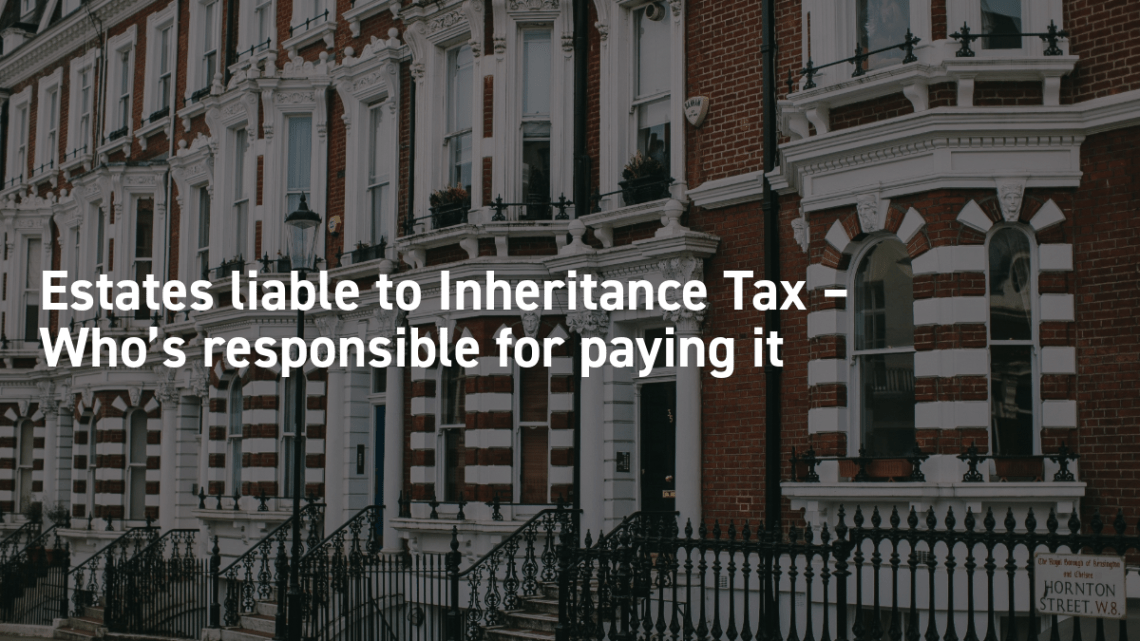
Inheritance Tax is a tax on the estate (which includes the property, money and possessions) of someone who’s died. The standard rate is 40% which is applied to estates that are valued above a certain threshold – this is called the Nil Rate Band which is currently £325,000. But who is responsible for paying it?
In this article, Marc Brinklow, Manager in the Trust Department at HW Fisher, explains who is liable to pay and the key deadlines to keep in mind.
Who is responsible for paying Inheritance Tax (IHT)?
Regardless of the nature of personal assets held within an individual’s estate on death, the executors/personal representatives are responsible for settling any IHT liability due.
In some cases, the deceased individual may have a life interest in a “Qualifying Interest in Possession” trust (most commonly, that will be where the interest in the trust existed before March 2006). The capital value of trust assets in which the individual has a life interest, is treated for IHT purposes as being comprised within their estate. The Trustees will be responsible for paying a proportion of IHT payable in relation to the trust assets out of the trust’s funds.
When does it need to be paid?
The IHT liability must be paid by the end of the sixth month after date of death.
There are certain business assets and property (such as land of any description and unlisted shares and securities) where you can pay the IHT in ten yearly instalments or until the asset is sold, whichever comes first. However, interest will start accruing (currently at 7.75%) on any outstanding liability after the date when the first instalment is due.
How to fund the IHT liability
When the value of a person’s estate exceeds the nil-rate band, there will likely be an IHT liability arising, subject to reliefs and exemptions.
The liability would initially be settled by any liquid assets held within the estate.
For the executors/personal representatives to have access to estate assets, usually a payment needs to be made towards the IHT liability before probate is granted. So, it is common for executors/personal representatives to apply to the banks holding the estate funds to request they pay the tax directly to HMRC.
It can often prove difficult in releasing funds from an estate before the six-month deadline, therefore executors/personal representatives can apply to HMRC to postpone payment of all or some of the tax due until probate is granted and it becomes easier to access the assets. However, late payment interest will arise on the outstanding IHT liability. Once the grant has been issued, it is expected that the outstanding tax is paid by the executors as soon as possible (known as a “grant on credit”). HMRC expect any cash available in the estate to be used to settle as much as possible of the IHT due.
If funds held in the estate bank accounts and other liquid investments are insufficient to cover the tax liability in full, there is an option to raise money from the estate assets (once probate is granted).
Where an estate includes company shares, the shareholders can vote a dividend which the estate can retain to settle any outstanding IHT. The executors/personal representatives will be taxed on receipt of this income (currently at a rate of 8.75%). No further tax will be payable by the beneficiaries of the company shares.
Another option is for the executors/personal representative to pay the IHT from their own resources or a loan and then claim it back from the estate when funds are available. Alternatively, the residuary beneficiaries may be able to pay the IHT and then be repaid when funds are distributed to them from the estate.
If you would like to receive tailored advice on Inheritance Tax, reach out to our team of experts here.
We’d love to hear from you. To book an appointment or to find out more about our services: